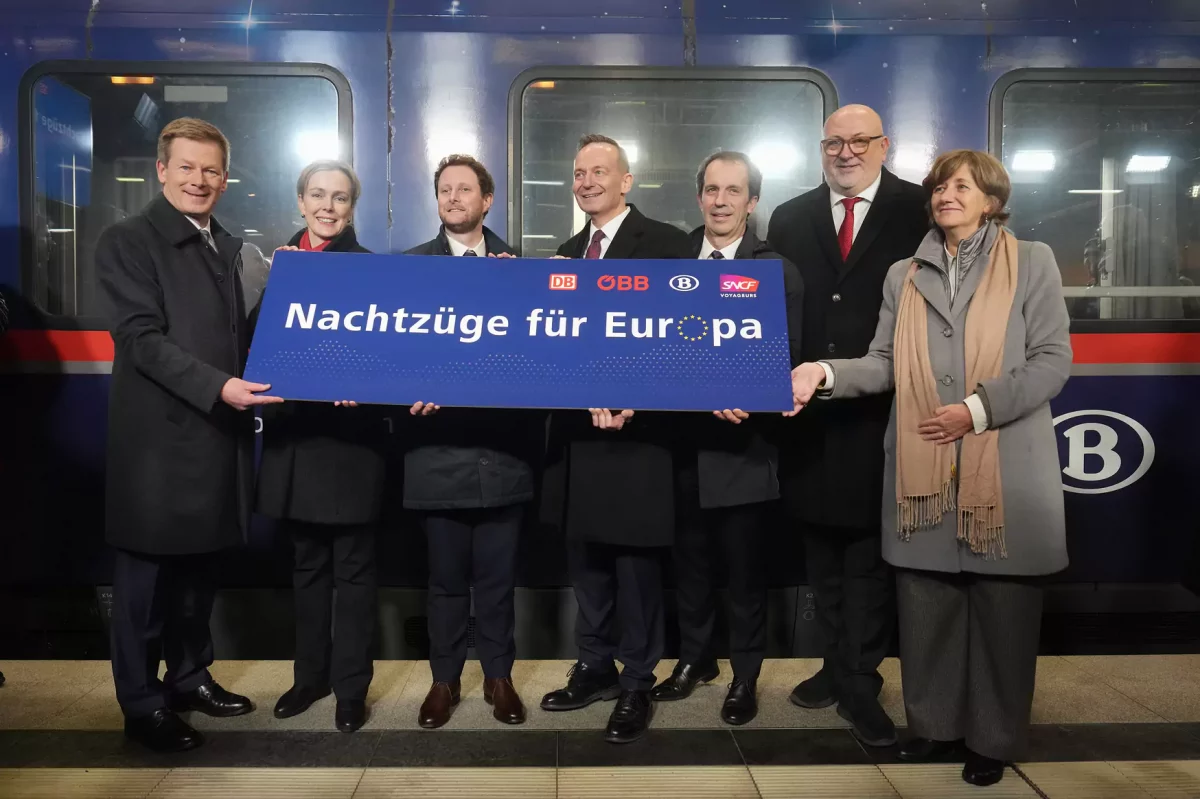As the first Berlin to Paris overnight train in nearly a decade pulled into the Gare de l’Est this week, many hailed the occasion as a landmark in the journey towards cleaner travel alternatives, but can long-distance trains really replace airplanes?
With the advent of cheap airfares, train travel in Europe dropped significantly. Countless services, including many long-haul and overnight journeys that had synced up cities across the continent for generations, were gradually eliminated until long-distance train travel was more novelty than genuine alternative.
But now, as the world is looking to cut carbon emissions and find greener ways to travel, trains have re-emerged as not just viable, but preferred methods of transport.
This was evident on the morning of Tuesday 12th December as the first Berlin to Paris overnight train entered the French capital’s Gare de l’Est station in nearly 10 years, marking a new age of an “old” approach.
THE NIGHTJET
Called the Nightjet service, the train connects Berlin, Brussels and Paris, and is part of a network of trans-European sleeper routes that are being resurrected under the impetus of the EU Green Deal.
The Paris-Berlin Nightjet – the information for which can be found here – will run three times a week thanks to a collaboration between Germany’s Deutsche Bahn, Austria’s ÖBB, Belgium’s NMBS/SNCB and France’s SNCF.
“It’s possible to fall asleep in Paris and wake up in Berlin,” says France’s Minister for Transport, Clément Beaune, of the new service. “It is the culmination of a commitment that I have carried for three years [and] a high point for Europe and ecology.”

FRANCE’S VISION
The French government has invested €100 million in jumpstarting national rail networks in recent years, and this latest development is all part of President Emmanuel Macron’s pledge to open several new domestic overnight train services by 2030.
The plans have gotten off to a good start, with the first new sleeper between Paris and Aurillac in the Cantal region setting off on 10th December, two decades after it was shut down.
The Paris-Berlin Nightjet line is an international extension of the French plan and joins an already launched Paris-Vienna route, but they are just two of the numerous other long-distance routes across Europe that are available at very fair prices via the Nightjet network.
“This [Paris-Berlin] train is the image of European cooperation that responds to the climate emergency and the need to connect peoples,” says Beaune. “This line completes a range of French night trains in France, with 10 lines gradually reopened. Our ambition is great: in France and in Europe, we will open other lines throughout this decade, we will buy and renovate night trains. The night train is no longer a symbol of the past, it is the image of the future.”
Prices for single tickets between Paris and Berlin start as low as €34.90 for a seat and €79.90 for a sleeping car. For more information, click here.
Join the Monaco Life community – the largest English media in the Principality.
Sign up for the Monaco Life newsletter, and follow us on Facebook, Instagram, LinkedIn and Tik Tok.
Photo credits: Deutsche Bahn AG / Oliver Lang
